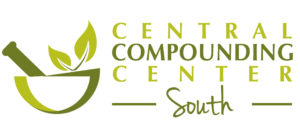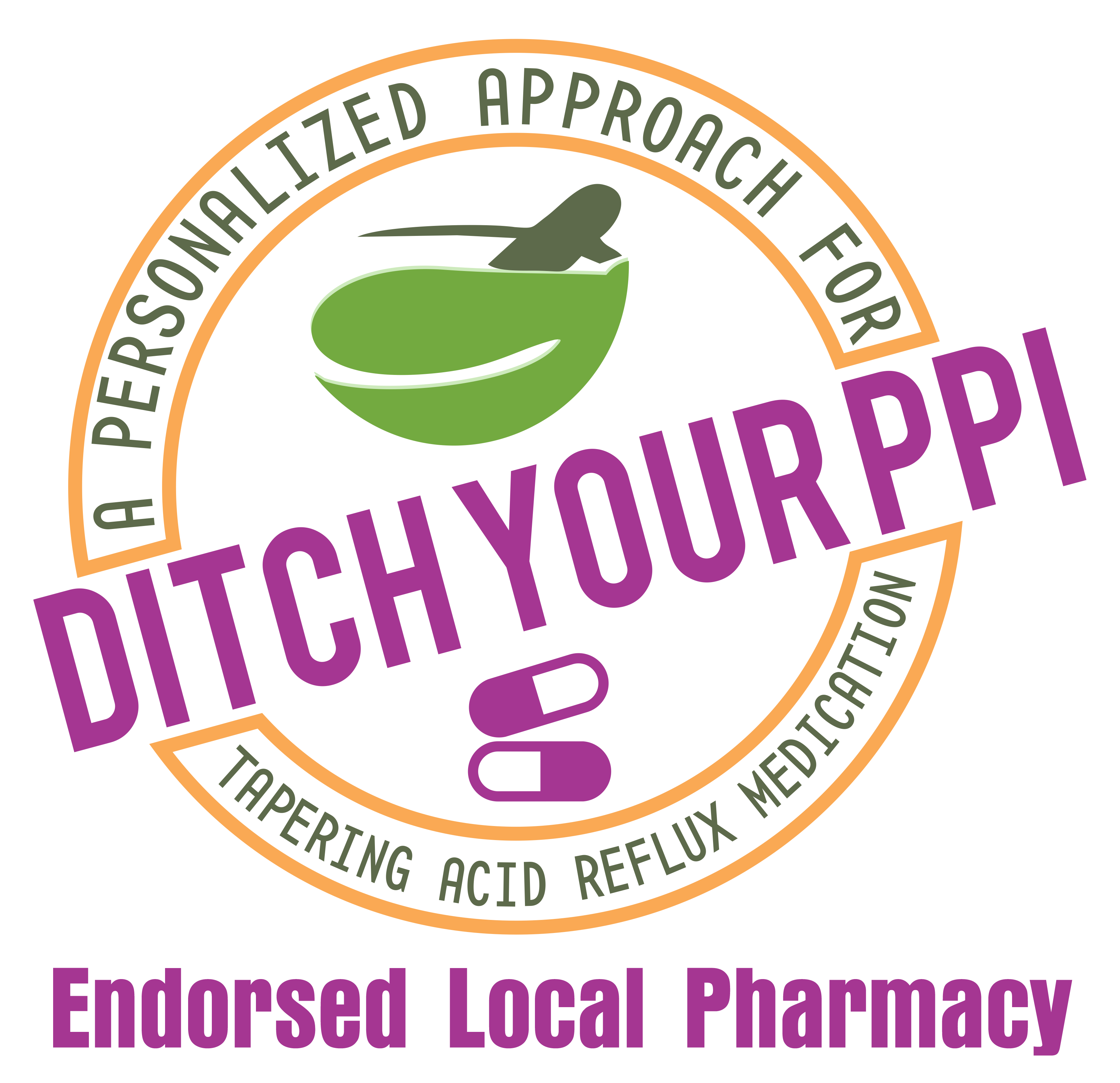Today we are going to talk about acid reflux medications, specifically the class of medications known as proton pump inhibitors or PPI’s for short. We are launching a new program called Ditch Your PPI to help people stop using these medications, which include Prilosec (omeprazole), Prevacid (lansoprazole), Nexium (esomeprazole), Protonix (pantoprazole), Aciphex (rabeprazole), and Dexilent (dexlansoprazole). If you or someone you know is taking one of these, please read on!
Did you know that PPI’s are only supposed to be used for 14 days at a time and no more than 42 days out of the year? You can see this written on the back of the box for over the counter PPI’s, but this recommendation is no different for the prescription strength versions. Most people who are taking a PPI have been on it for much longer than this. It has been estimated that 53-69% of all PPI use is inappropriate.
Using PPI’s for longer than the recommended time period can put you at risk for a bevy of different problems. Some minerals and vitamins like magnesium, calcium, and vitamin B12 need stomach acid to be absorbed properly. PPI’s can prevent you from absorbing these fully, which can lead to deficiencies. These deficiencies then cause issues of their own. Poor calcium absorption can increase your risk for bone fracture and vitamin B12 deficiency increases risk of dementia, among other things.
Using a PPI also carries an increased risk for infections, including the bacteria Clostridium difficile (commonly referred to as C. diff) and pneumonia. C. diff bacteria are found throughout the environment, in human and animal feces, and food products, such as processed meats. The majority of C. diff infections occur in the hospital, but infection rates outside the hospital are increasing. This increase has been associated with PPI use.
Some other potential risks of long-term PPI use are chronic inflammation of the stomach lining, progression of kidney disease, and increased risk of gastric cancer.
A big reason why people stay on PPI’s for so long is that they become dependent on them. When people try to stop taking the medication, they get intensified acid reflux symptoms, referred to as rebound acid reflux. There are other, less potent acid reflux medications called H2-blockers (like Pepcid and Zantac) that can be used to help replace the PPI, but even when these are tried the success rate of PPI termination is only about 25%.
That’s where we come in.
Our new Ditch Your PPI program aims to drastically increase the success rate of stopping your PPI. Like everything we do at Central Compounding Center South, we take a personalized approach with this program.
The first step is to sit down for a brief, no-charge consultation with one of our pharmacists at either Central Compounding or Central Pharmacy. During this visit we will identify foods that trigger your reflux symptoms and design a plan tailored to your specific needs. This plan may include the use of supplements to help support your gastrointestinal health. We will also create a compounded taper regimen for you, which will allow you to come off of your PPI as slowly as possible to avoid rebound acid reflux. Typically, this will involve decreasing your PPI dose every two weeks. We will also provide you with some capsules that can be used as needed in the event you do experience any rebound symptoms.
If you are on a PPI and are interested in learning more please contact us. We are excited about Ditch Your PPI and believe that this program will help a lot of people successfully stop their acid reflux medications, avoiding many risks associated with their use in the process! -Michael Verble, PharmD, RPh

